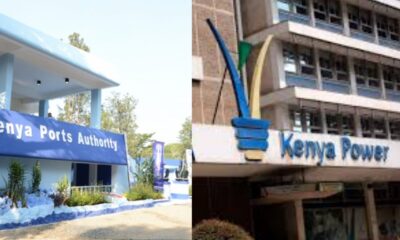The faces of hungry people across the northern and eastern regions should awaken our emotions about the ugly contradictions of Kenya’s social and economic disparities.
As the elite bleed the country through corruption and greed, the poor face the frightening prospects of starvation and permanent disability, or death, because they cannot afford the most basic need: Food.
Famine and starvation should have been wiped out long after independence, but over half a century later, government policy has failed to resolve the food vulnerability problem that condemns children, pregnant mothers and the elderly in semi-arid and arid areas to a perennial life of penury.
The World Food Programme (WFP) describes Kenya’s level of malnutrition as “unacceptably” high.
Its January 2019 country brief states that 29 per cent of rural children, and 20 per cent of those in urban areas, are stunted.
Food and nutrition deficiency exposes children to common diseases, stunting and impaired learning.
It is an indictment of how public resources allocated yearly to improve livelihoods of the poor are wasted in corruption-riddled grandiose projects, which continue to benefit a few at the expense of the majority.
The epicentre of the current desperation includes Turkana, West Pokot and Baringo counties, where local people are exposed to drought and ethnic conflicts over food and pasture.
These are the communities that should have benefited from Arror and Kimwarer multipurpose dam projects.
But the contract for the construction of the Sh65 billion dams was awarded to an Italian firm that went bust after sinking over Sh20 billion in advance payments, insurance and facilitation fees paid by Kerio Valley Development Authority.
The litany of scandals in large dam projects, including Thwake in Makueni County and Galana-Kulalu irrigation project in Tana River, is sickening.
It’s a grave reminder of how deeply cartels, facilitated by government officials, have captured big public development projects.
Even though adverse weather and corruption aggravate food and nutrition deficiency, misguided policies, some driven by greed and vested interests, contribute to rising poverty and desperation, particularly in areas where people depend heavily on government interventions for survival.
The most ridiculous assumption is that maize defines food security for all 50 million Kenyans, yet their social and consumption habits are as diverse as their cultural orientation.
The government has perpetuated the notion that maize is the national staple.
A protectionist maize policy is used to prop up a few farmers in the North Rift and western Kenya, who enjoy lavish benefits such as subsidised fertiliser and negotiated producer payments, usually above market prices.
The biggest scandal is how this is used to transfer taxpayers’ funds to cartels through the National Cereals and Produce Board.
Instead of ensuring a fair price for producers and consumers, this policy inflates prices of maize delivered to NCPB and pushes up prices, forcing poor maize consumers to spend more on food.
The government should scrap fertiliser and maize subsidies to level the market for producers and consumers.
It should encourage producer and consumer intermediation that facilitates the evolution of a competitive market, with realistic prices, for maize.
Another deceptive ritual is the chronic obsession of policymakers with food imports.
The massive importation of maize, sugar, milk powder and other commodities destroys the livelihoods of local farmers and worsens poverty in rural areas.
These are some of the moral issues that the government must confront to achieve food and nutrition security — which is among President Uhuru Kenyatta’s ‘Big Four Agenda’.
It’s wishful thinking that food security can be achieved in a hostile environment where survival of local farmers is pegged on the vagaries of cyclical weather, punctuated by destructive corruption by public officials and cartels that control trade in agricultural produce.

 General News6 days ago
General News6 days ago
 Politics5 days ago
Politics5 days ago
 Business News4 days ago
Business News4 days ago
 General News4 days ago
General News4 days ago





